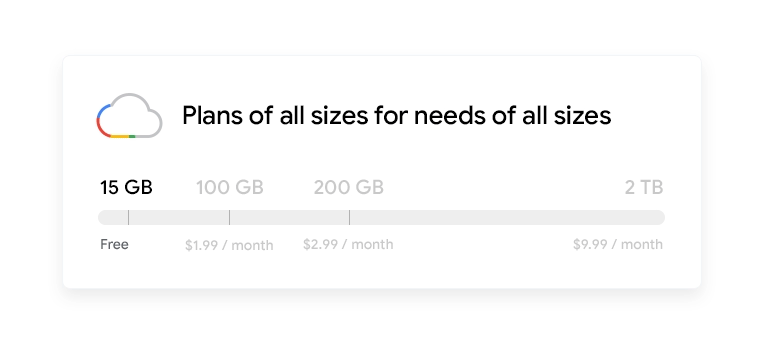Why it matters: Competition in the consumer cloud storage space is fierce with major players like Google, Microsoft, Dropbox and Amazon all competing for your business. Google's new price points and perks serve as a differentiator - now, how will the competition respond?
Google One, the search giant’s revamped cloud storage offering for consumers, is now available to everyone in the US following a limited rollout that began a few months back.
Pricing starts at $1.99 per month for 100GB of storage. Google is also offering a plan with 200GB of storage for $2.99 per month as well as 2TB, 10TB, 20TB and 30TB options for $9.99, $99.99, $199.99 and $299.99 a month, respectively. The 15GB of free storage is sticking around, it seems, although you only get storage – no extra perks.

Google One allows users to share their storage with up to five family members, each with access to all the other benefits of Google One.
With Google One, you also get one-tap access to tech support experts and, oddly enough, savings on hotels found through Google Search. Google is additionally handing out credits for Google Play although details on amounts and how to get them weren’t mentioned in today’s post.
Business users will still be best served by G Suite.
Google One is available to users in the US and over the coming weeks, it’ll be expanding to additional countries. To upgrade your existing Google Drive account, simply head over to the Google One website.
https://www.techspot.com/news/75981-google-one-now-available-everyone-us.html